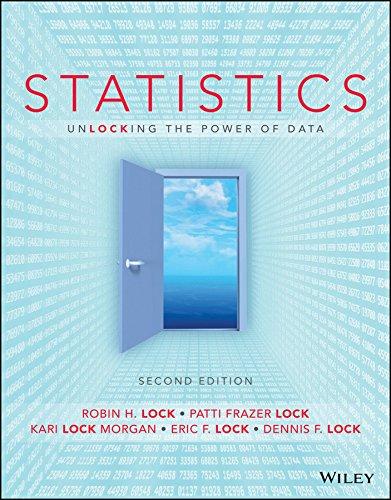Sleep and Recognition of Facial Expressions. The ability to recognize and interpret facial expressions is key to
Question:
Sleep and Recognition of Facial Expressions. The ability to recognize and interpret facial expressions is key to successful human interaction. Could this ability be compromised by sleep deprivation? A 2015 study $^{58}$ took 18 healthy young adult volunteers and exposed them to 70 images of facial expressions, ranging from friendly to threatening. They were each shown images both after a full night of sleep and after sleep deprivation (24 hours of being awake), and whether each individual got a full night of sleep or was kept awake first was randomly determined. The study found that people were much worse at recognizing facial expressions after they had been kept awake.(a) What are the explanatory and response variables?
(b) Is this an observational study or a randomized experiment? If it is a randomized experiment, is it a randomized comparative experiment or a matched pairs experiment?
(c) Can we conclude that missing a night of sleep hinders the ability to recognize facial expressions? Why or why not?
(d) In addition, for the people who had slept, the study found a strong positive association between quality of Rapid Eye Movement (REM) sleep and ability to recognize facial expressions. Can we conclude that better quality of REM sleep improves ability to recognize facial expressions? Why or why not?
Step by Step Answer:

Statistics, Enhanced Unlocking The Power Of Data
ISBN: 9781119308843
2nd Edition
Authors: Robin H Lock, Patti Frazer Lock, Kari Lock Morgan, Eric F Lock, Dennis F Lock





